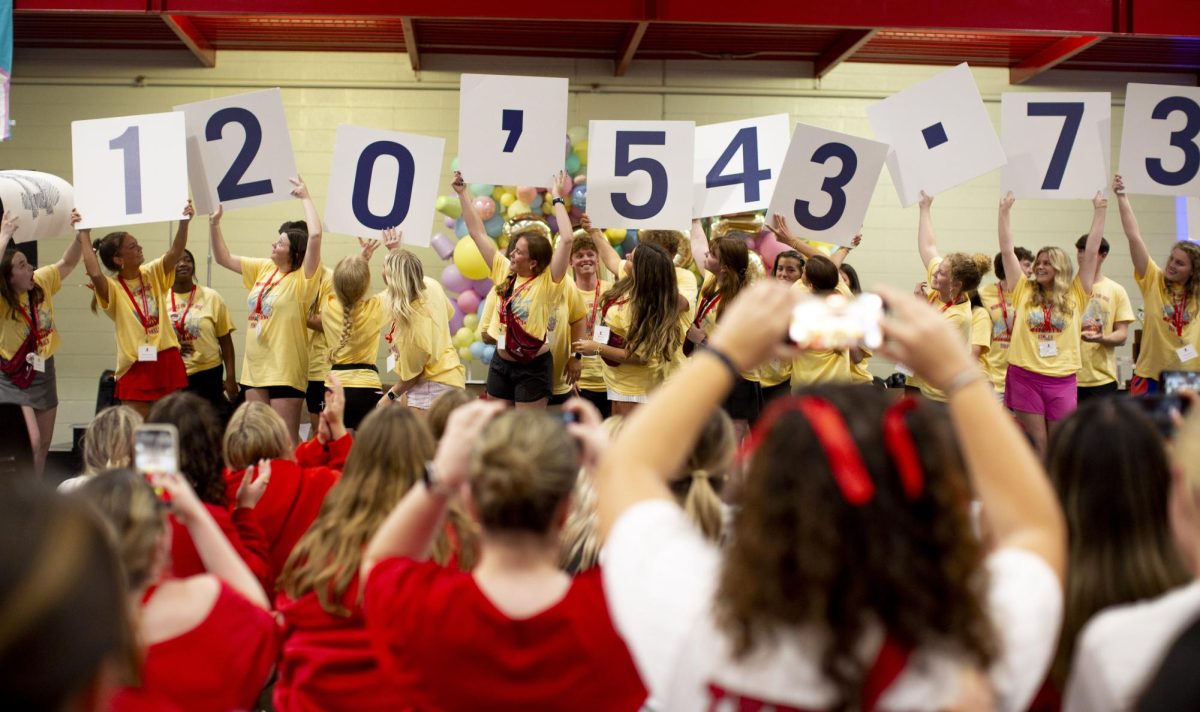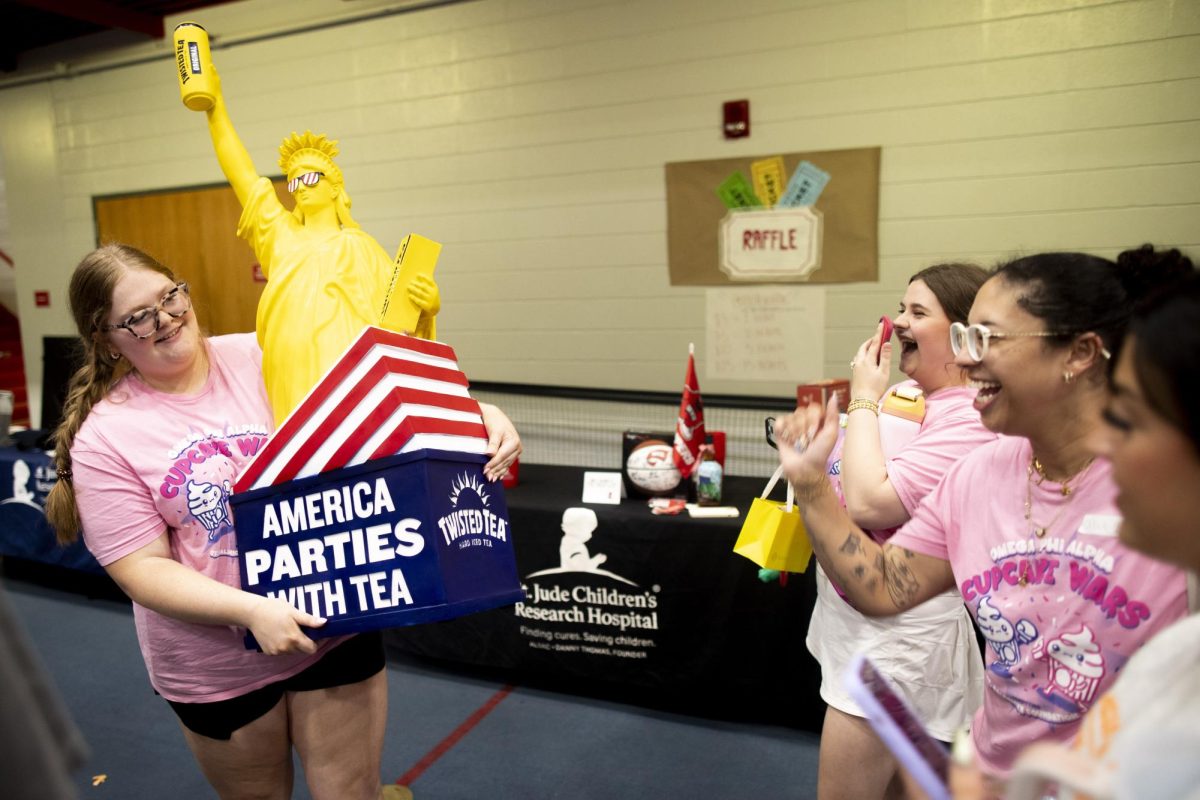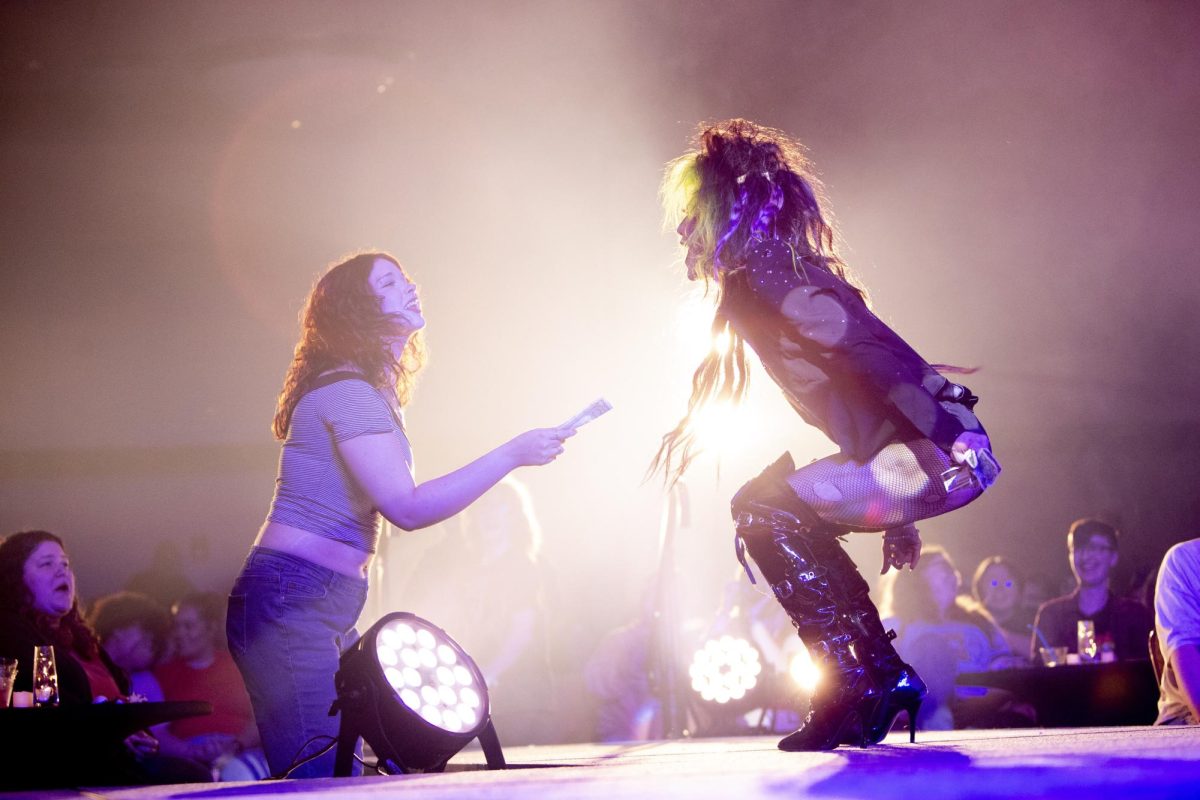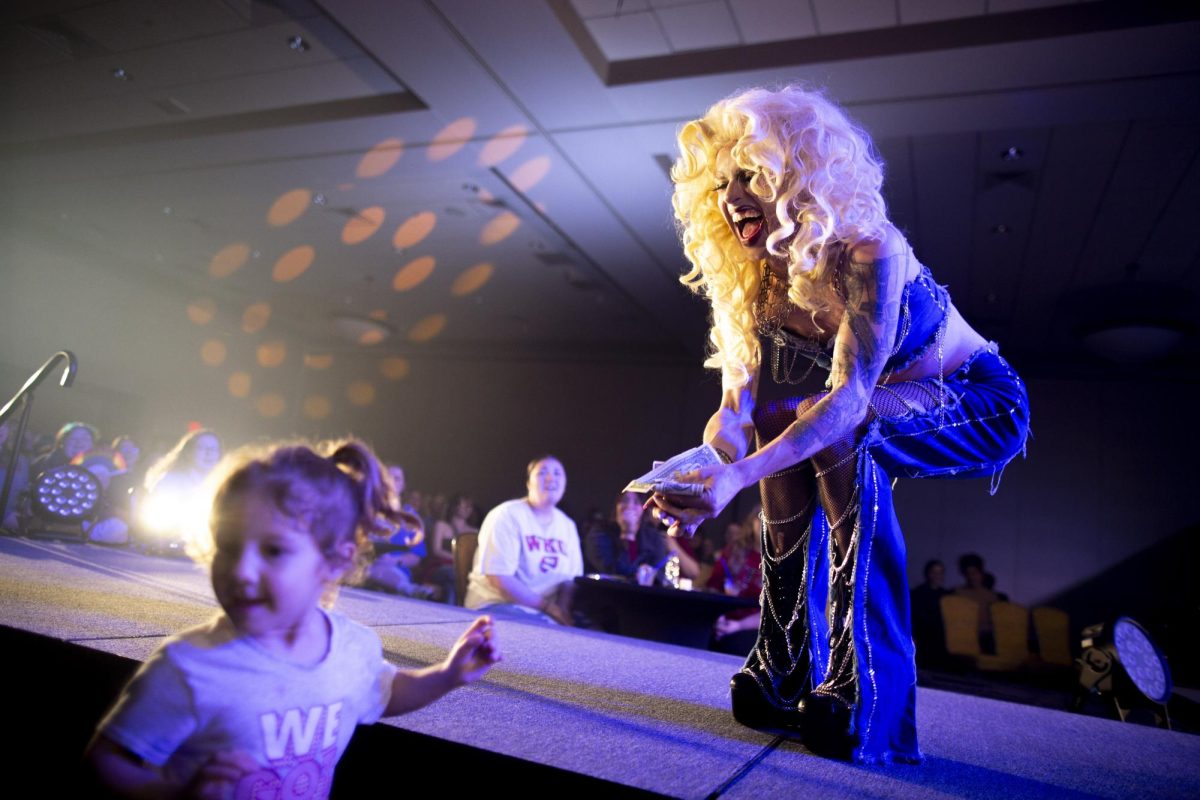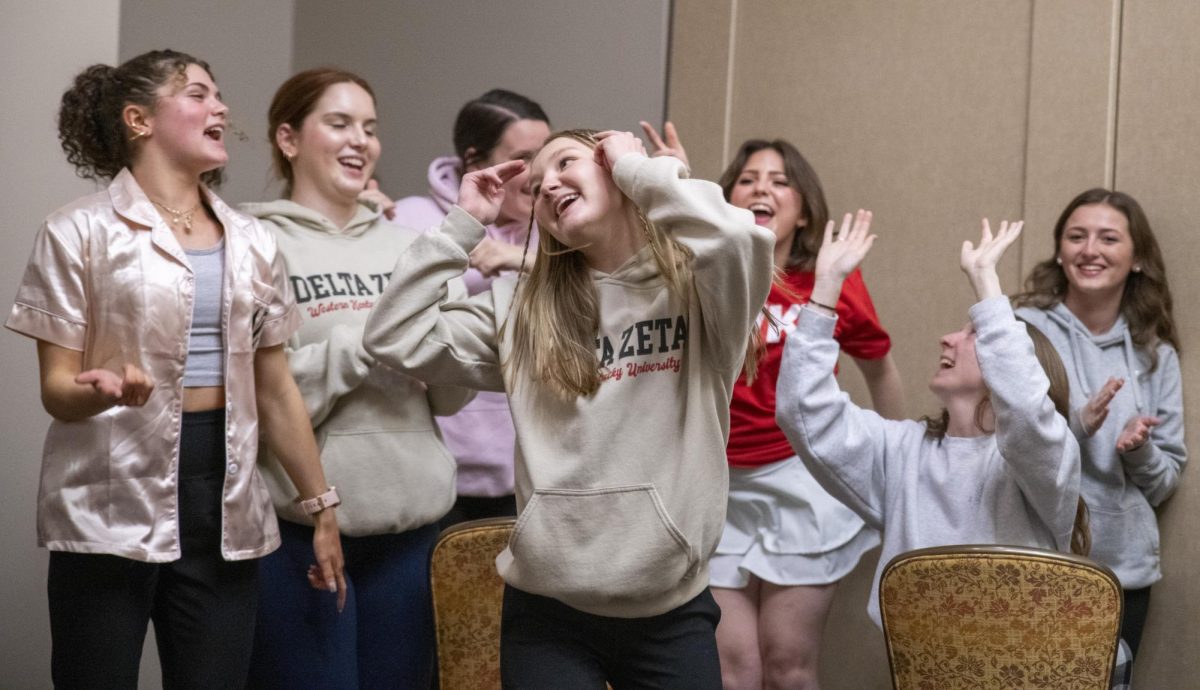
The day before I learned that Heather Strode had died, my best friend and I talked about grief in a Nashville coffee shop.
The conversation is familiar to us. We have it again and again, on phone calls and in person, turning our grief over in our hands, passing it back and forth, tracing its evolving shape as time lengthens.
“I always want to fight,” I told him, not for the first time.
I want it to be a monster I can kill, he agreed.
When a catastrophe of any scale strikes, to fight is my first instinct. I want to feel my knuckles crack against bone. I want to tear at something with my teeth. I want to draw blood and elicit pain.
Heather was, in her patient, determined way, teaching me how to push past that instinct.
I don’t remember the first time I met Heather. It must have been at the first faculty meeting in August 2023. Because the schools of communication and media were merging, our department director set up a “speed dating” activity (for which I still haven’t totally forgiven him). I’ve desperately searched my memory for some half-buried scrap of that first encounter, but my “date” with Heather is lost in a blur of new faces and names and anxiety at the unfamiliarity of it all. Up to that point, my career had mostly been spent in newsrooms, not academia, and that first year, I often felt wholly unprepared, like I was trapped in that routine nightmare about taking a final exam after a full semester of missed classes.
Heather was on the first committee I ever served on and during those meetings, I alternated between trying to look competent and asking deeply stupid questions. She saw I was floundering, and afterward, she would reassure me that I would get the hang of things. Until then, she recommended that I focus on being the best professor I could be. Everything else would come with time.
In my second semester, a student in my feature writing class pitched a profile on Heather for her final piece. I hesitated. It seemed too easy—access was not a question, and as far as I could tell, this pint-sized woman was perfect. In that class, I emphasize the importance of capturing the full range of the human experience, warts and all, and as far as I could tell, Heather Strode was flawless.
Still, the student was determined, and she had put in the work. I green-lit the pitch with reluctance.
What I did not know then—what I should have known—is although that sweet, wonderful woman was, in fact, a near-perfect human being, she was also tough as shit.
As the student worked on the profile, Heather and I discussed what it meant to share one’s story with a journalist. In the beginning, she was unnerved by the idea. The boundary between teacher and student can be hard to define, and profile writing demands clear-eyed honesty from the writer and vulnerability from the subject. We were asking a lot of her.
But Heather Strode was always game.
After a few weeks, she caught me in the hallway. A wide grin was plastered on her face. She told me she was finding unexpected catharsis in opening up about her early life. That feeling, I told her, meant that the reporter was doing a good job as an interviewer, and that she was doing the important work of showing up fully. When the semester ended, I sent her a copy of the story (with the reporter’s blessing). Over the past several weeks, I’ve opened and closed that document again and again with the intent of editing it for publication. I can’t seem to get through it. In the story, she’s so alive. Heather’s vivacity, even on the page, makes it harder to believe that she’s gone.
Last fall, I found myself wandering into her office more and more often. When I walked by, she would call to me. “Hey, Becca!” Sometimes, my head full of to-do’s and don’t-forgets, I would hesitate to return her greeting. Now, I would give anything to hear it once more.
A couple weeks into the semester, we decided that it was high time we cement our burgeoning friendship with a trip to Starbucks for iced matcha lattes and a leisurely talk about our summer breaks. The prior spring, we had stood together outside of DSU on the evening of the protests over Kyle Rittenhouse’s appearance, keeping a watchful eye on our students and expressing solidarity with our students of color who felt threatened by his presence. At some point that evening, she had mentioned her grand plan to hike the Camino in Spain with her son and a friend [FC]. She was visibly nervous but excited. Over the summer, I followed her adventure closely on Instagram, and I was eager to hear about it.
On that fall day, because I was on campus with Heather Strode, out and about, it took us a while to get into the rhythm of true conversation. We were stopped, repeatedly—on the walk to Starbucks, in line to order, waiting to get our drinks, on the walk back—by students who clearly adored her. “It’s like being with a celebrity,” I marveled. She laughed me off. “I’ve just been here a long time,” she replied.
But it was more than that. God, I hope she knew. Surely, she knew.
All educators are faced with a choice—to fill their role as a teacher and nothing more, or to allow their lives to become intertwined with those of their students. Perhaps this choice isn’t so much a true decision as it is an extension of one’s self or one’s personality. I don’t see either as being somehow more noble than the other, but Heather and I are firmly in the latter category.
The difficulty of that sort of intimacy is that it gets complicated fast, and it’s important to set boundaries.
No, “set boundaries” sounds too clean, and the process is messy as hell. In my first three semesters, I leaned heavily on my colleagues for help finding those lines that seemed in near-constant motion.
Last semester, I felt I was consistently deprioritizing my own emotional needs amid those of a few students who I cared for deeply and who I knew were dealing with trauma that I was ill-equipped to address. One day was particularly grueling—a student was spiraling in a way that made me fear for their safety, I had an argument with a colleague, and I couldn’t remember the last time I had sat down for a real conversation with my spouse where I was totally present.
Overwhelmed, I walked four doors down to her office. She greeted me, and I burst into tears. The embarrassment of being a grown woman crying at work only made me cry harder. She was patient, waiting for me to get the story out. “I am trying so hard,” I sobbed. “And it’s not enough. It’s never, ever enough.”
“Oh, Becca.” She sighed. She always did that—said my name. In the beginning, it alarmed me, and made me feel like she could see more of me than I wanted to show the world. By this point, being known by her was a comfort.
She said all the right things. She said everything I needed to hear, even the parts I didn’t want to hear. She told me this was all familiar to her. She had come to understand what I am still working to wrap my head around: that sometimes, the harder thing is to stop fighting, and to accept our limited power over wild fate and other people.
I am not the only one grieving this loss, nor am I among those who knew her best. But in the past semester, I have been trying to put her lessons into practice. To stop fighting what I cannot change, and to be profoundly grateful to have had such a beautiful friendship in the first place.
Becca Andrews is an assistant professor of journalism in the WKU School of Media & Communication. Andrews can be reached at becca.andrews@wku.edu.



